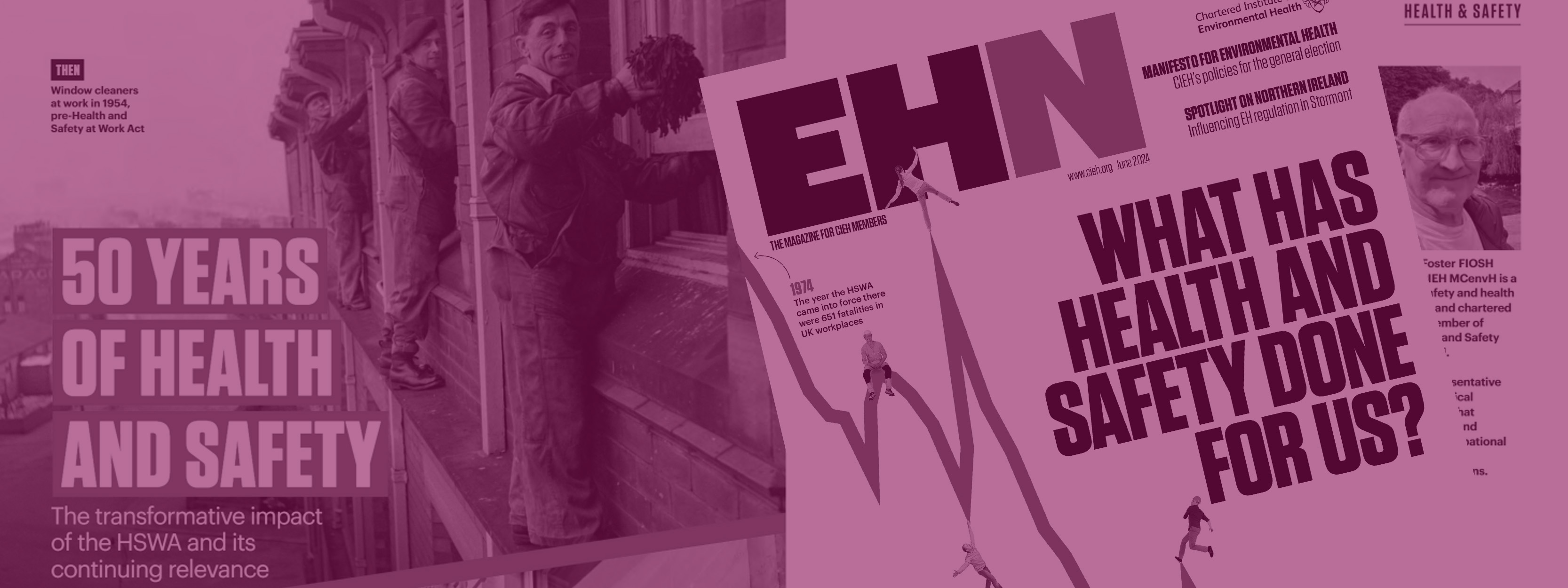EHN special editions
We're celebrating the 50th anniversary of the Health and Safety at Work Act and the Control of Pollution Act with two special editions of EHN available to all.
CIEH member: £55
Affiliate member: £110
Non-member: £110
CIEH student member: £110
How do I pay? Please click the book now button to complete the online booking. Please note payment for online bookings are card only.
To pay by purchase order, please email the details to [email protected], this is subject to your employer having this facility in place with CIEH. To speak with one of the team in our contact centre please call 020 7827 5800.
The Codex Alimentarius (or “Food Code”) Commission revised its code of practice in 2020, which has resulted in new definitions, new concepts and a change of focus. While large food business operators holding international certifications such as BRC will be familiar with the changes, regulators, small-and-medium-sized enterprises (SMEs) and consultants may be less sure. This training session is an opportunity to revisit the principles of Hazard Analysis and Critical Control Point (HACCP) and compare old with new.
This event will be delivered by Dr Belinda Stuart-Moonlight CEnvH FCIEH, who has experience of advising food industry clients, auditing food factories and reviewing HACCP systems as an expert witness, and she will draw on diverse examples to highlight what the changes look like and mean in practice.
For regulators, assessing HACCP systems is part of their enforcement role and knowing a good system from a poor one is crucial when determining hygiene ratings and appropriate interventions. For industry professionals, ensuring that plans and systems are compliant enables confidence that due diligence can be met. This session will explore the elements and intention of the modern HACCP plan.
Delegates will become familiar with the importance and context of:
CPD: 2 hours

Dr Belinda Stuart-Moonlight, Chartered EHP and Expert Witness
Dr Belinda Stuart-Moonlight is a Chartered Environmental Health Practitioner. Belinda specialises in food safety and infectious intestinal disease control. Early on in her career, Belinda worked as an Environmental Health Officer in local government enforcement, before taking up a Junior Research Fellowship at King’s College, London. For the last twenty years, Belinda has run her own business providing consultancy, training, auditing and expert witness services. As an expert witness, the majority of her instructions focus on food contamination risk, and increasingly, injury and death from food allergy. Belinda is regularly sought after to provide opinion and consultancy for prosecution and defence, as well as, for organisations such as the Food Standards Agency (FSA), CIEH and the Association of British Travel Agents (ABTA).
Online (Zoom)
Please ensure you can access this platform before booking. See the Zoom system requirements for further information.

EHN special editions
We're celebrating the 50th anniversary of the Health and Safety at Work Act and the Control of Pollution Act with two special editions of EHN available to all.